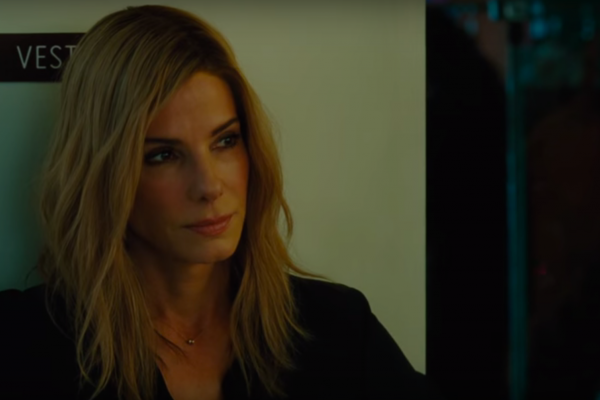To be fair, the new film Our Brand is Crisis starts from a challenging position: Inspired by a documentary of the same name, the film is a political comedy about what happens when American political strategists apply their talents to a presidential election in Bolivia. It’s a satire that involves a real country, with real problems. So to succeed, it had to be culturally sensitive, clear about its story and the points it wanted to make, and convincingly funny.
Usually, seeing a filmmaker approach a challenge like this would be a fascinating experience, or at least an interesting one. But the approach Our Brand is Crisis takes is simply not the way to do it. It’s a mess of a movie with good intentions, but misplaced action. It’s almost always an uncomfortable experience, and not for the right reasons.
Our Brand is Crisis stars Sandra Bullock as Jane Bodine, a former campaign whiz whose personal and professional problems cause her to quit the business. Courted by former colleagues to turn around a failing presidential campaign for a Bolivian oligarch (Joaquim de Almeida), Jane initially intends to treat the job as a paid vacation. She gets fired up when she learns her bitter rival (Billy Bob Thornton) is running the opposing campaign. Motivated not by morals but by a desire for opponent-shaming victory, Jane throws herself into the campaign, pulling out every dirty trick in the book to win.
The point of the film, ostensibly, is to show how damaging America’s highly-competitive political nature is by applying it to a situation where the country’s people stand to lose a lot very quickly if the wrong person wins. However, writer Peter Straughan makes the fatal error of making the film almost entirely about Bullock and Thornton’s goofy one-upsmanship. This not only comes off as disrespectful, it avoids giving the audience valuable contextual information about the actual race — we have no idea what’s at stake, or what the candidates really believe.
Once the consequences of the election come to pass, we’re given a last-minute redemption arc that has Jane joining forces with a young Bolivian campaign volunteer (Reynaldo Pacheco) and his friends in a protest, and then later starting a career campaigning for Latin American rights. It’s the one part of the film that takes its politics seriously. But here again, the story isn’t about the people who are actually suffering — the people who have to live with the man they were manipulated into electing. It’s about Jane, the American, who at the end of the day still gets to leave it all behind.
Structurally, there are many other problems with Our Brand is Crisis that make it fail as a film. Its wild tonal imbalance, for one thing, and its waste of a great supporting cast, for another, as well as weird choices from director David Gordon Green that betray a filmmaker who’s not fully comfortable with his material. But the film’s biggest problem is its misguided focus. It’s hard not to view Jane’s story as the transformation of a privileged white person’s life at the cost of others’ — a narrative we’re given far too often in film, and a particular disappointment here.
WATCH the trailer for Our Brand is Crisis.
Got something to say about what you're reading? We value your feedback!

